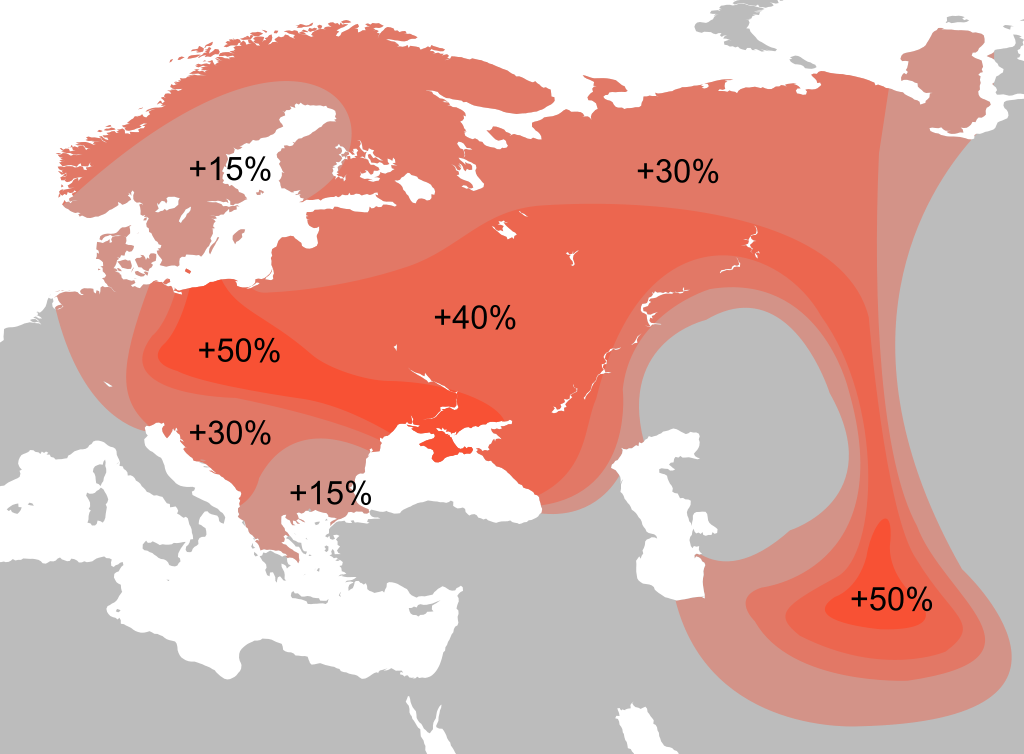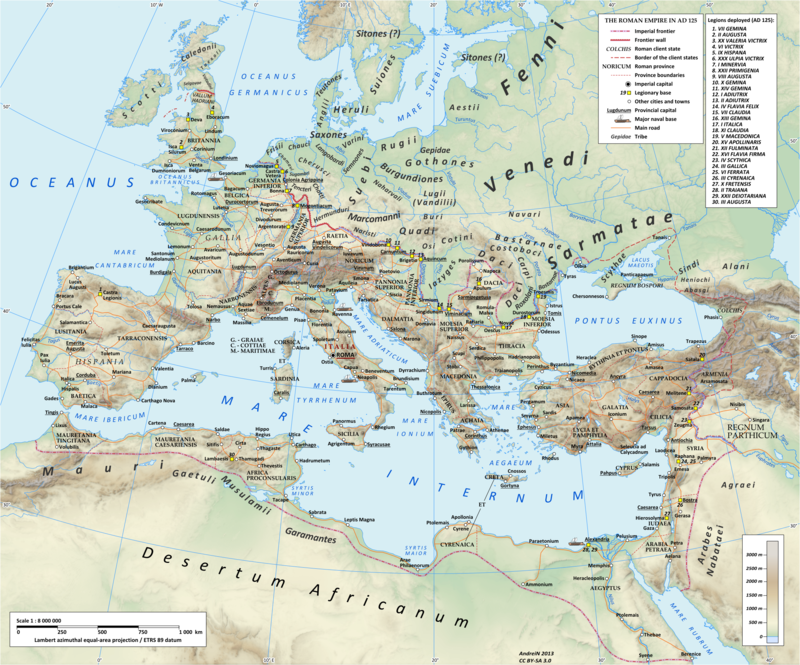History /
Sarmatism in Poland [119]
Are you sure that Sumeria later became Persia?
Sorry meant Elam which was basically the parallel to Sumer - general Mesopotamia area. You're right Sumeria was more Iraq near the Tigris and Eurphrates with Ur I believe being their largest city. However, much of the info that we know about proto-Persia actually comes from Sumerian writings like the Sumerian Kings List. Elam later became the Archamenid empire and later the Median empire. This general area was very very civilized compared to the rest of the world, especially Europe which was still mostly living as hunter gathers with no fortifications,
there was no Poland in 1-st century
I know - I'm talking about the people who existed in those times in pre-966 Poland.
t even any slavic tribes between oder and vistula. slavic tribes settled there in 5-th or something, coming to vistula area together with ostrogoths, from northern Caucasus and black sea area after fleeing huns. isnt?
Partially true. There is a bit of debate in this. The culture that would've existed in Poland, again going by modern day borders, would've been the Lusatians which were all over Poland, but developed originally in Lodz, and later became the Pomeranians that lived between the Odra and Wisla which mixed with the Przeworsk culture (contained tribes like the East German Rugians and Lemovi) that was already there. Also, the Veneti, which became modern day Wends/Wendish culture, lived from the Wisla to the north up to Gdansk and are thought to be a Germanic/Batlic people. However, again, this is debatable because most of the tribes like the Gepids, Rugerians, Veneti (Wends), Goths, Vandals were all Germanic tribes. There is a lot of debate on what the ethnicity of the Lusatians is (the culture before the Pomeranians) but it is said that they developed from the earlier Trzciniec culture which is proto-Baltic-Slavic. However, it is said that the Lusatians, which the Trzciniec culture developed into, had many influences from Northern and Western European lands like the Nordic culture and also La Tene culture (ancient Celtic culture) which is more pre-French/Swiss/German.
Some tribes were allied with the Huns and fought against the Romans and other local tribes while some tribes were allied with the Romans and fought against the Huns. Like the Gepids constantly fought the Huns, but then allied with them around the time of Attila. When the Roman empire fell and the huns gained power there were many tribes who migrated westward out of fear resulting in further mixing and assimilation of tribes in Poland/East Germany. The Gepids for example though, like the Rugians, are thought to be a Germanic people and either related to the Goths or a subgroup of them, and they lived in lands that are modern day Poland.
There really isn't too much written records about the slavs aside from Romans and Greeks describing the people who would've lived in Poland. The writing they had aren't too good either - could be propoganda - but we were described as very violent, leaderless people, that were rather disorganized but nonetheless endured hardships and refused to be conquered and subjugated. Our looks included fair to lightly tan skin, very tall and strong, often blue eyes and a wide range of hair colors from blonde, brown, to red.
So in summary, there were a lot of influences on Poland before 966 - Scandinavian (possibly?) Goths, East German Vandals, possibly local Przeworsk (included East Germanic people like the Rugians - who originally came from Norway - means Rye in old norse and similar to rzyto in Polish), Scandinavian Jastorf who's languages became modern day Germanic languages, the Basternae (thought to be a Germanic people originally from northern Poland - lived in the Carpathian mountains as their northern borders and mostly around Dacia which is mostly modern day Romania, they had language similarities to the Sarmatians and were thought to be a tribe or subgroup of the Sarmatian Scythians - could be correct but could also be due to assimilation)
Due to the lack of written records of this time period (unlike say Sumeria, Elam, Egypt) it is difficult to determine ethnicity for certain of these cultures. Researchers can only go by archaeology and cultural influences. Like for Lusatian culture we know they had Nordic influence by the types of bronze weapons and tools discovered but also possibly La Tene culture because of the decorative items and similarities of urns discovered in Poland were similar to those found in France, Austria, Germany, etc.
Here is an excellent source with a timeline of Poland history that goes from 9000 B.C. to the present:
historyfiles.co.uk/KingListsEurope/EasternPoland.htm#Vidivarii
If you are interested in learning more about Sarmatism in Poland there are many books on the topic. There's one called 'Sarmatians In The Polish Past'
As as Poland's pre-966 history, Tacitus and Ptolemy are probably the best written sources. Even they couldn't figure out the exact ethnicity of the people who lived in Poland (again, going by the modern boundaries) at the time but stated that they were similar in culture to the east Germans.
Here is a brief exerpt from a website:
The presumed ancestors of the szlachta, the Sarmatians, were a confederacy of predominantly Iranian tribes living north of the Black Sea. In the 5th century BC Herodotus wrote that these tribes were descendants of the Scythians and Amazons. The Sarmatians were infiltrated by the Goths and others in ...
everything.explained.today/Sarmatism
Here is an article from Tacitus around 100 AD describing the people that would've inhabited Eastern Europe - granted a bit east of Poland as during the 1st century most of the people that would've lived in modern day Poland would've been Vandals, Goths, Gepids, Rugians, etc. The Fenni and Veneti/Venedi lived a bit further east in Russia/Belarus but would've come closer to Poland throughout the european migration and also as the huns gained power.
Here Suebia ends. I do not know whether to class the tribes of the Peucini, Venedi, and Fenni with the Germans or with the Sarmatians. The Peucini, however, who are sometimes called Bastarnae, are like Germans in their language, manner of life, and mode of settlement and habitation.
The Romans, and especially the Greeks, didn't like the slavs very much because they'd constantly pillage their cities and destroy everything.
Ptolemy classes the Veneti/Venedi as being more closely located to the Baltic in the areas of Poland up to the Wisla in the 2nd century. A later author, Jordanes, states that the Veneti are the ancestors of Slavs and originated from around the Wisla and migrated outward.
There is so much mixing of tribes and movement in Poland from around 500 B.C. to 800 A.D. that it's nearly impossible to determine a single common ancestral group. The Veneti are oftentimes the most accepted - but even they, along with most of the others, are East Germanic people.


